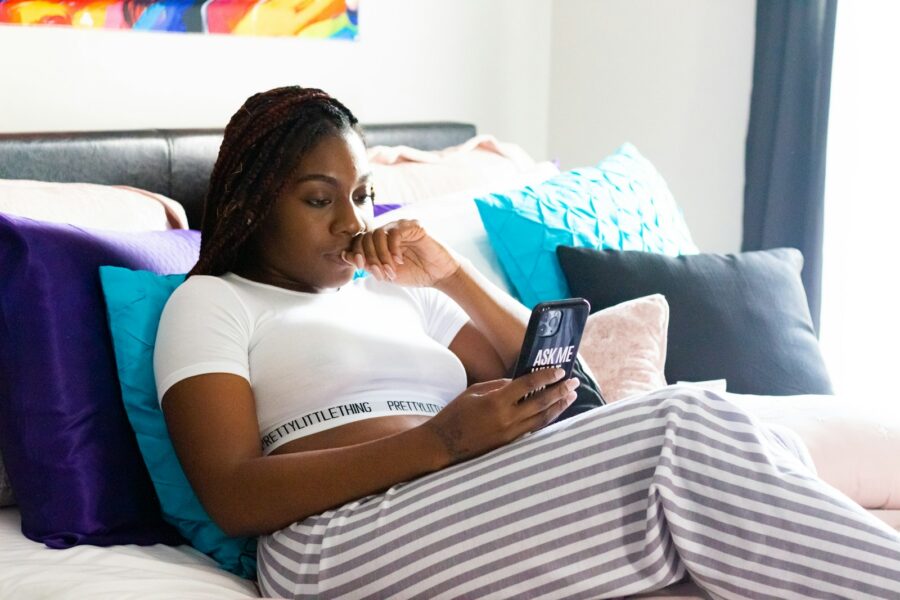Almost a third of young adults (18-34) are checking their work emails from their bed, new research reveals.
A survey of 2,000 UK adults, commissioned by DUSK, has uncovered the bedtime habits of the nation, with some shocking results.
The study found that 30% of those aged 18 to 34 check work emails in bed, with 19% even answering them, which is much higher than the national averages of 15%, and 10%.
And this isn’t the only way that technology and screen time are intertwined in young adults’ sleep routines. The research revealed that a staggering 82% of 18 to 24-year-olds and 77% of 25 to 34-year-olds scroll their phone in bed, compared to the national average of 50%.
Despite so many young adults having these habits, scrolling in bed is more harmful to this age group’s sleep than any other demographic. Whether the result of blue light from devices or stress-inducing social media posts, the same survey found that 61% of 18 to 34-year-olds believe scrolling their phone in bed negatively impacts their sleep, significantly higher than the national average of 33%.
So why do the younger generation feel more inclined to scroll their phones and check work emails from the comfort of their bed? Sian Guest, Head of Brand at DUSK discusses the reasons behind why younger people might frequently use their phones and check work emails while in bed, noting how this behaviour could negatively impact their mental wellbeing and sleep quality.
Sian points out that younger generations are often more comfortable with technology due to growing up with it. However, she expresses concern about the significant trend of working from bed among this demographic, particularly those who live at home or in shared accommodations. This setup might force their bedrooms to serve dual functions as private relaxation spaces and makeshift offices, contributing to poor habits like checking emails late at night, which can blur the boundaries between work and downtime, making it difficult to unwind and affecting sleep negatively.
Sian comments:
Our research shows that poor sleep can sabotage our productivity at work. When asked about the effects of poor sleep, more than half of the 18- to 34-year-olds asked said they experience poor concentration and reduced motivation. On top of that, 43% of the same age group admitted they experience increased feelings of stress following a bad night’s sleep, considerably higher than the average of all ages, at 32%.
Sian Guest, Head of Brand at DUSK
To help Gen Z employees avoid the pitfall of checking work emails before bed and ensure they obtain a good night’s sleep, employers need to firstly establish clear guidelines about work communication outside of business hours. Employers should encourage Gen Z staff to set healthy boundaries, emphasising that employees are not expected to respond to emails late at night.
Employers can also offer flexibility in work hours to accommodate personal schedules and reduce the need to extend work into bedtime. Lastly, employers can provide education on the importance of digital detox periods, especially before sleep, to enhance mental wellbeing and sleep quality.
Joanne is the editor for Workplace Wellbeing Professional and has a keen interest in promoting the safety and wellbeing of the global workforce. After earning a bachelor's degree in English literature and media studies, she taught English in China and Vietnam for two years. Before joining Work Well Pro, Joanne worked as a marketing coordinator for luxury property, where her responsibilities included blog writing, photography, and video creation.



